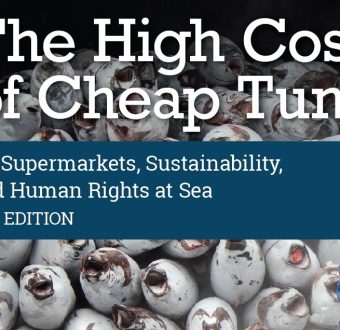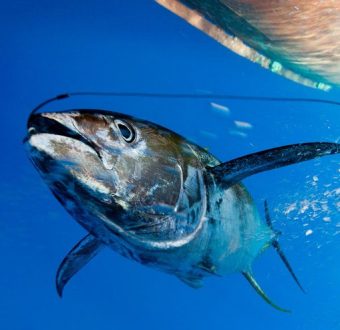A Canadian court ruled yesterday that farmer Percy Schmeiser must pay Monsanto after his fields were found to be contaminated by the company’s genetically engineered canola. Pollen from neighboring fields was the source of the contamination. The award amounts to over $15,000 plus damages, which could amount to another $75,000, and came after Monsanto company investigators trespassed on Schmeiser’s land and found the company’s genetically engineered canola growing in his field. The court found that because Monsanto owns patent rights on the genes used in the altered canola, the farmer was liable for growing the crop, even though he did not intentionally plant the engineered seed.
“It will take totally all of my wife’s and myself’s retirement funds that we’ve worked for all our life,” said a disappointed Percy Schmeiser, 70. “I’ve lost 50 years of work because of a company’s genetically altered seed getting into my canola, destroying what I’ve worked for, destroying my property and getting sued on top of it.”
“It’s outrageous that farmers are forced to pay for genetic pollution from unwanted crops,” said Charles Margulis, a Greenpeace Genetic Engineering Specialist. “The same chemical companies that polluted our food with pesticides are now polluting our food with their new genetic technology.”
In the U.S., farmers have become increasingly concerned about genetic pollution since environmentalists revealed that StarLink, an engineered variety not approved for human food, has contaminated the food and seed supply. Earlier this month USDA revealed that it would spend as much as $20 million to buy StarLink-contaminated seed. Other engineered seed contamination has been detected in cotton, soy and other crops, yet farmers have no protection from this genetic seed pollution. If the Schmeiser case sets a precedent, any farmer whose crop is contaminated via tainted seed, pollen drift, or other unavoidable environmental pollution will be forced to pay biotech companies for unwanted genetic pollution.
“It’s as if a pesticide drifted into your field and destroyed your crop, and instead of getting compensation, you have to pay the company for using its chemical,” added Margulis.
According to The Washington Post, in response to the Schmeiser decision, the U.S. National Farmers Union said: “We’re extremely concerned by what liabilities may unfold for the farmer, particularly with cross-pollination of genetically modified plants.”
Trish Jordan, Monsanto’s spokeswoman in Winnipeg was cited as admitting the company’s reputation has been damaged by the case. “For Monsanto, it is a bit of a no-win situation. It’s pretty easy to paint this as the multinational beating up on the poor little farmer,” she was quoted as saying.

